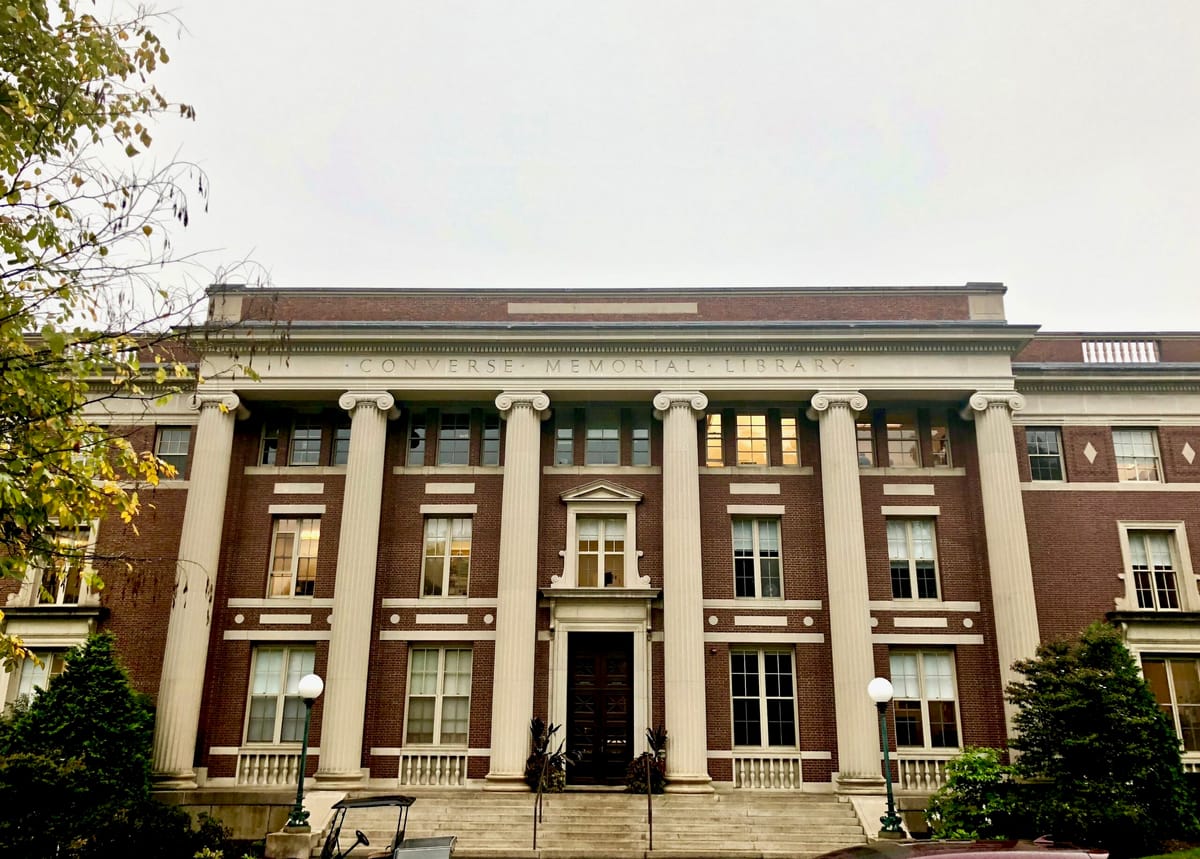Proposed Plan Could Tax College’s Endowment

Jay Gonzalez, the Democratic candidate for governor of Massachusetts, announced a proposal this month to impose a state tax on non-profit colleges and universities with endowments exceeding $1 billion, which would include Amherst. Gonzalez is running against Republican incumbent Charlie Baker in the Nov. 6 election.
Gonzalez’s platform includes expansive plans for transportation and education initiatives, and this tax is a part of his method for funding these initiatives. If enacted, the tax will affect a total of nine institutions in the state: Amherst, Boston College, Boston University, Harvard, Massachusetts Institute of Technology, Smith, Tufts, Wellesley College and Williams.
“He’s under a lot of pressure to explain to Republicans how he’s going to fund all of his initiatives and [the tax is] his response to that,” said Hayley Fleming ’21, a member of the Amherst College Democrats. “So it’s definitely him bowing to political pressures.”
Gonzalez said to MassLive.com, “I think it is fair to ask those institutions, who have accumulated huge wealth as a result of exemption from taxation, to pay what is a modest tax. We need them to step up … and help make sure we’ve got an economy that’s working for everyone.”
Fleming acknowledged that the notion of taking from the rich and giving to the poor seems like a leading issue for the Democratic party. “It’s definitely an issue where Amherst College has this much money and then you have UMass Boston which definitely doesn’t have this much money,” she said.
However, she noted that the ways in which wealthy institutions spend their money must also be taken into account. “The policy isn’t [Democratic] in a sense that you’re taking away from wealthy institutions that use this money to fund financial aid packages for lower- and middle-income students.”
In an interview, Dean of Financial Aid Gail Holt expressed agreement with Gonzalez’s sentiment that institutions such as Amherst should be paying it forward to the economy. However, like Fleming, she argued that Amherst already does its part by providing the best need-blind financial aid in the country to its students, who will contribute to the Massachusetts economy after graduation.
“The fact that Amherst is awarding $57 million of Amherst money in financial aid proves that [we are paying it forward] every year,” she said. “The incoming class that has just entered Amherst is incredibly diverse from an economic standpoint. Seventy to 75 percent of our graduating seniors graduate with no loan debt at all. That’s going to place them on a solid footing to contribute to Massachusetts’ or others’ economies.”
Holt also stated that as of now, the effect that the proposal would have on the total budget and financial aid is still unclear. “We try to take things as they come. Whenever there’s a change in how the college needs to expend resources, there has to be an overall assessment on what impact it would have on the budget,” she said. Such assessment has not yet been undertaken.
Kevin Weinman, chief financial officer of the college, said that 52 percent of Amherst’s annual operating budget comes from the endowment. The rest of the budget is made up of net tuition, the annual fund and other sources such as summer camps and walk-up meals at the dining hall. He also said that paying the tax would be difficult as the school cannot use gifts given for other purposes to pay taxes. “It’s become much more prevalent for gifts to be restricted over say the last 10 or 15 years,” Weinman added.
“What’s interesting is that the policy itself is not generally in line with any similar Democratic policies. It’s actually more similar to a recent policy passed by the Republican congress,” Fleming noted. “In a way he’s taking a Republican idea and applying it to Massachusetts. It varies from other Democratic policies because Democrats traditionally want to pour as much money into education as they can.”
The Republican federal tax bill was passed by Congress last December and institutions, including the college, became subject to a 1.4 percent excise tax on investment income from their endowments. The tax comes into effect this fiscal year and has not been yet been paid out.
Holt emphasized that this federal tax differs in nature from the proposed state tax. “The difference is that it is 1.4 [percent] on the earnings of the endowment, not the endowment itself. So you’re talking in the range of a million dollars versus 25 million dollars [for the state tax], and that’s a big difference.”
“We are tax-exempt in our core mission, but to the extent that we have business activities that are deemed to be unrelated, we owe taxes on that,” Weinman said. “One example might be summer camps.”
He also noted that the college contributes money to the town of Amherst outside of formal taxes. “We make voluntary payments to the town in recognition of the services that the town provides back to the college, for example emergency response services and so forth.”
“That’s a big selling point to donors, who know when they give to the college that money won’t be taxed,” he added.
In a statement to The Student, President Biddy Martin denounced the proposition. “The proposed tax would make it impossible to do what Amherst is committed to doing — providing the best possible undergraduate education to talented students regardless of means,” she said.
“Roughly a quarter of our students come from the lowest income groups in the country … The tax proposed by gubernatorial candidate Gonzalez would deal a blow not only to the commonwealth’s colleges and universities, but to those families least able to pay,” she added.





Comments ()